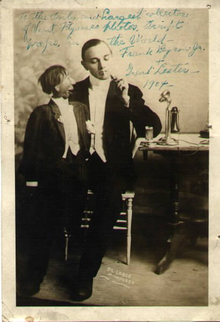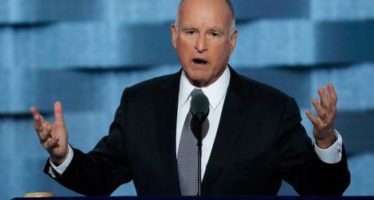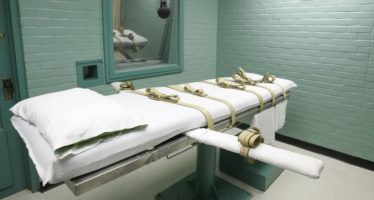Prop. 32: Striking fear in the hearts of union bosses
Sept. 24, 2012
By Katy Grimes
California voters have plenty of reasons to push for serious political reform: a statewide foreclosure crisis, unfunded pension debt of more than half a trillion dollars, and cities filing for bankruptcy. But the many elephants filling the room are the labor unions and special interests manipulating politicians like a masterful ventriloquist.
Just in the last 10 years, the California Teachers Association and the Service Employees International Union, two of the most powerful and omnipresent labor unions, have spent hundreds of millions of dollars on lobbying and political contributions.
But have no fear; voters have a chance this November to let their voices be heard. For many years politicians have sought political contributions from corporations and public employee, government unions, and then voted the way those special interests told them.
With California laboring under record budget deficits, rampant public employee abuses, five-star public pensions and bad public employees that voters can’t get rid of, Proposition 32 is looking like a knight in shining armor.
Pay attention to this proposition
Prop. 32 would prohibit corporations and public employee unions from making direct contributions to political campaigns. And, it would ban automatic payroll deductions by corporations and uninos of employees’ wages to be used for politics.
This would level the playing field of politics and give grassroots organizations and voters a political voice once again.
But expect a very nasty war with the unions and government-related businesses fighting this change. Opponents have already thrown more than $37 million into the campaign to defeat Prop. 32.
| Total campaign cash |
|
| $8,800,000 | |
| $37,600,000 | |
Monkeying with ballot language
After three different versions and a lawsuit, here is the final Prop. 32 ballot language, written by a California Superior Court Judge:
- “Prohibits unions from using payroll-deducted funds for political purposes. Applies same use prohibition to payroll deductions, if any, by corporations or government contractors. Prohibits union and corporate contributions to candidates and their committees. Prohibits government contractor contributions to elected officers or their committees.”
The judge’s version is a far cry from the second version, given to Prop. 32 after it qualified for the ballot:
- “Restricts union political fundraising by prohibiting use of payroll-deducted funds for political purposes. Applies same use restrictions to payroll deductions, if any, by corporations or government contractors. Prohibits union and corporate contributions to candidates and their committees. Prohibits government contractor contributions to elected officers or their committees.”
It has become standard operating procedure for the California Attorney General to write grossly misleading ballot language on initiatives.
Brown and unions
It was then-Gov. Jerry Brown who first approved collective bargaining for state and local government employees. In 1975, he signed the Rodda Act for teachers’ unions. And in in 1978, he signed the Dills Act for other unions. Since then, public employee unions have become the most organized, powerful political force in California. And they dominate all Democrats in the Legislature, as well as Brown.
Yet Brown is proud of this, despite unions pushing government spending on benefits and pensions to the breaking point. “I’m very proud to have created this system that gave workers a choice,” he told members of the Service Employees International Union while running for governor in 2010.
Unions and Prop. 32
“Taking such payroll deductions for political purposes without consent is patently immoral,” Larry Sand, a retired teacher and school-choice proponent, recently wrote in a Los Angeles Times op-ed. “Why should a worker have some of his forced union dues spent on candidates or causes that he doesn’t agree with?”
Ironically, public employee union bosses are spending members’ union dues again trying to defeat the very reforms that voters want. As Sand explained, these union bosses aren’t spending millions of dollars because they’re worried that the elected officials negotiating their benefits will become accountable to rich people. They’re worried that politicians might become fiscally accountable to the taxpayers.
Unions have operated unaccountably in California for 34 years. The thought of voters ushering in accountability must surely strike fear in the hearts of union leaders. Otherwise they wouldn’t have already spent $37 million trying to defeat the proposition which would end the era of employee paycheck heists.
This is a list of the $100,000 and over donors to the “no” campaign as of September 17, 2012, according to Ballotpedia:
| Donor | Amount |
|---|---|
| California Teachers Association | $16,452,509 |
| SEIU/California State Council of Service Employees | $6,788,969 |
| California Professional Firefighters | $2,601,580 |
| AFSCME | $1,634,725 |
| California Labor Federation (AFL-CIO/Change to Win) | $1,372,431 |
| Peace Officers Research Association of California PAC | $1,276,846 |
| California School Employees Association | $1,050,000 |
| California Faculty Association | $1,027,471 |
| California/American Federation of Teachers | $800,000 |
| International Association of Firefighters | $500,000 |
| Professional Engineers in California Government | $500,000 |
| Thomas Steyer | $500,000 |
| California Statewide Law Enforcement Association | $426,552 |
| California State Pipe Trades Council | $250,000 |
| Los Angeles Police Protective League’s Public Safety First PAC | $250,000 |
| Peace Officers Research Association | $250,000 |
| Million More Voters (AFL-CIO) | $245,516 |
| Northern California District Council of Laborers’ Issues | $150,000 |
| State Building and Construction Trades Council of California | $129,718 |
| United Transportation Union | $105,000 |
| San Bernardino County Safety Employees’ Benefit Association | $100,000 |
| John Perez Ballot Measure Committee | $100,000 |
| United Domestic Workers of America | $100,000 |
| Union of American Physicians & Dentists | $100,000 |
| California Association of Psychiatric Technicians | $100,000 |
The “yes” on Prop. 32 contributors include the Howard Jarvis Taxpayers Association, Charles Munger, former Los Angeles Mayor Richard Riordan, the America Future Fund, and the Lincoln Club of Orange County.
Sand ended his op-ed with a Thomas Jefferson quote: “To compel a man to furnish contributions of money for the propagation of opinions which he disbelieves is sinful and tyrannical.”
Here’s more food for thought from Jefferson: “Law is often but the tyrant’s will, and always so when it violates the right of an individual.”
Related Articles
Gov. Brown cautions Democrats on 2016 presidential race
Although Hillary Clinton has benefited from a post-convention bounce, Gov. Jerry Brown’s recent counsel to complacent party members resonated sharply for
Commish Gives Dems 2/3 Majority
John Seiler: A year and a half ago I was the first person to predict that, in 2012 or 2014,
Voters narrowly approve measure to expedite death penalty executions
A measure to speed up executions in California was projected to pass Tuesday night, according to the Associated Press. Proposition





